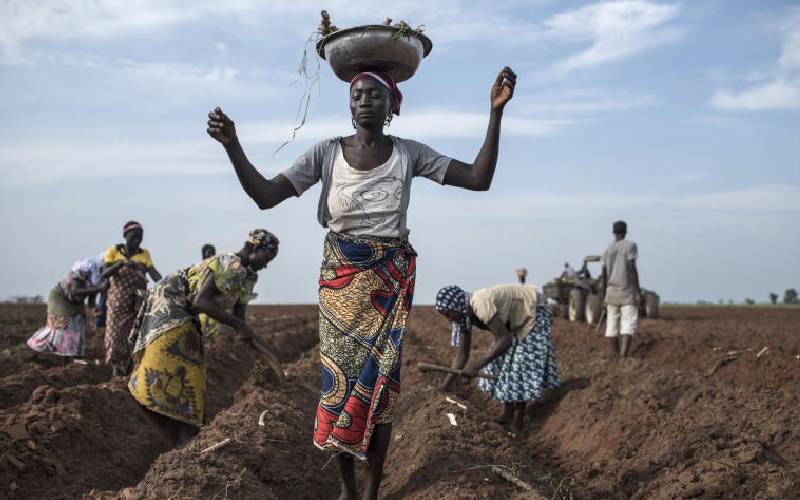×
The Standard e-Paper
Fearless, Trusted News

Women planting cassava on a recently prepared land in Nigeria, July 12, 2017. [AFP, Courtesy]
A walk in Karura Forest in Nairobi on a chilly morning is nostalgic. One cannot help but marvel at various indigenous trees and shrubs. One shrub, we learnt, is known as mutati in Gikuyu language (parasol tree).